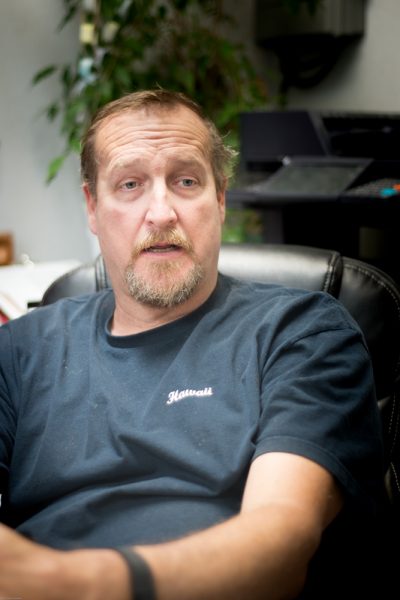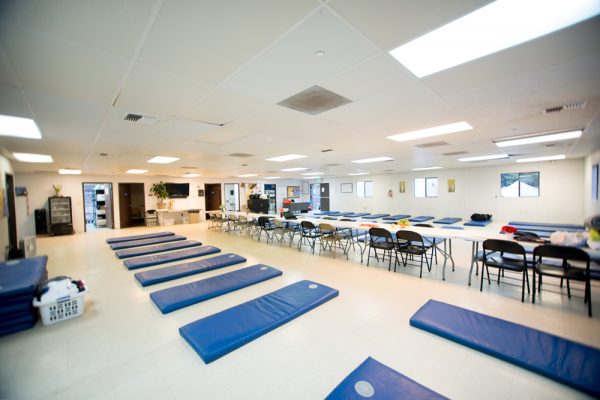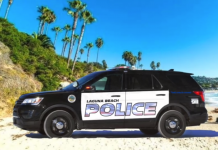By Tracy Darling, MD and Brian Isley, Special to the Independent
Around Thanksgiving, many of us stop to count our blessings, to give thanks for things we take for granted the rest of the year, and to appreciate our loved ones. We often don’t realize that no matter how bad off we may be, someone out there has it worse. Volunteering my time at the ASL shelter in the canyon this last few weeks has been a touching and eye-opening experience. Getting to know some of the residents and their stories compelled me to help bring their plight into the public eye.

November was National Homelessness Awareness month, but the issue confronts us year-around.
About 20 percent of the nation’s homeless live in California, where 118,000 lack the comforts of a home, says the federal Department of Housing and Urban Development. Yet, over 1.2 million children reported to school they could not provide a physical address as of January 2015, the most recent statistics available from Child Trends, a Washington, D.C., public policy research nonprofit. This leads to the conclusion that the HUD numbers cited above are substantially underreporting the number of homeless.
Many Laguna Beach residents don’t know that there are two homeless shelters in town. One is the Friendship Shelter, and the other is the ASL (Alternative Sleeping Location) on Laguna Canyon Road. Many of the residents of homeless shelters have mental health conditions or substance abuse issues and do not want or refuse help. But many people who become homeless were working full time jobs and had homes just months ago, and never suspected “it would happen to them.” I would like to tell some of their stories.
I have been spending two evenings per week at the ASL shelter, a 45-bed facility that provides a meal to approximately 100 people nightly. Shower and laundry facilities are available, as well as donated clothes, shoes, blankets, and even internet service. A limited supply of first aid items are also provided. Every night there is a lottery to see who gets to sleep inside. Approximately 60 homeless are turned away, as there are not enough sleeping mats or space to accommodate everyone. Those who are turned away end up sleeping in their cars if they are lucky enough to have one, or they lie outside with blankets or wander the streets, then sleep on park benches or on the beach during the day.
Mia, the director, was willing to let us take photos and talk with guests who were willing to share their stories with us. Some of them did not wish to be interviewed, or wanted their stories to remain anonymous.
First we spoke with a woman about 35, who was married to a law enforcement officer that a year ago was promoted and moved to the East Coast. The stress of his new position created an abusive relationship with his wife. After two months of ongoing abuse, she left without any possessions and without her children to escape her dangerous situation. She drove across the country alone, living in her car. She continues to hide and live in fear, and feels she has no one to turn to for help. She is afraid to even get a job as she does not want her husband, who has considerable connections, to locate her. She is devastated that she has lost everything, including her children, and doesn’t know what her future holds.

Second was John. John is a real estate agent who for years made a good living “flipping” houses. He has a wife and two school-age children, who live with their maternal grandmother. Due to the state of the economy two years ago, John was not able to purchase his next property, and suddenly found himself without income, resulting on the foreclosure of his own home. He has been living in his truck ever since, and goes to the homeless shelter for food and fellowship. He is a veteran and a diabetic, who has limited access to health care and so is at high risk for complications of his disease. The food available to him is often not diabetic-friendly, as quality protein and vegetables that he requires can be expensive. He does not smoke, drink alcohol, or use drugs, and never has. John is a kind, hard-working man dedicated to bringing his family back together.
We also spoke with some of the staff, who are angels to the shelter residents. They work tirelessly to provide a safe environment and are often challenged by extreme stress and limited resources. As I provided basic first aid and medical advice to residents who requested it, I watched as the staff members fed, clothed, and comforted those in need. They also connect people with social services to help get them proper housing, jobs, healthcare, and food stamps when possible.
The truth is, any of us could end up in this situation with an unexpected downturn in our lives. It is our duty to help those who are in need, and I would like to appeal to everyone in Laguna Beach to help wherever they can, whether it be volunteering your time, donating food or clothing, or sending a check so the shelter can buy much needed supplies.
To learn more about how you can help, contact the Friendship shelter at 949 494-6928.




